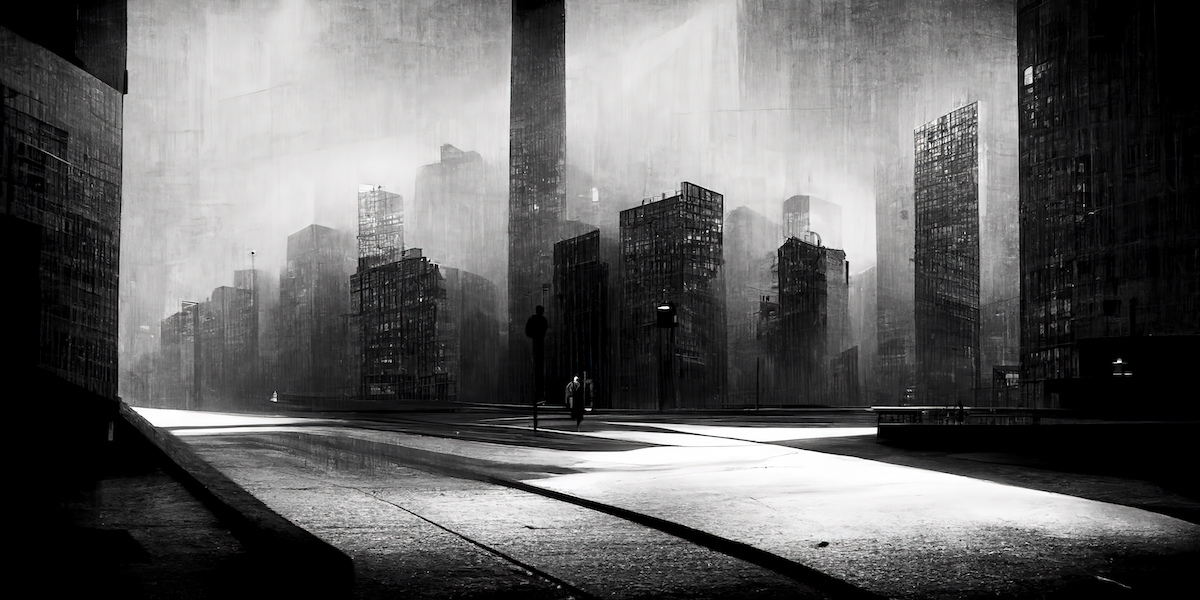The Knock-Out Blow With Jonathan Ames
 Raymond Chandler, in his novels and short stories, loved to have his protagonists, especially the private detective Philip Marlowe, get hit on the head and knocked out. It was often a convenient plot device–the detective is unconscious and the bad guy gets away–but I always noted these moments, a real trope in Chandler’s work, because he saved some of his best poetry for describing the blows that his heroes received. Here’s this memorable passage from The Big Sleep when Marlowe is knocked unconscious:
Raymond Chandler, in his novels and short stories, loved to have his protagonists, especially the private detective Philip Marlowe, get hit on the head and knocked out. It was often a convenient plot device–the detective is unconscious and the bad guy gets away–but I always noted these moments, a real trope in Chandler’s work, because he saved some of his best poetry for describing the blows that his heroes received. Here’s this memorable passage from The Big Sleep when Marlowe is knocked unconscious:
The fist with the weighted tube inside it went through my spread hands like a stone through a cloud of dust. I had the stunned moment of shock when the lights danced and the visible world went out of focus but was still there. He hit me again. There was no sensation in my head. The bright glare got brighter. There was nothing but hard aching white light. Then there was darkness in which something red wriggled like a germ under a microscope. Then there was nothing bright or wriggling, just darkness and emptiness and a rushing wind and a falling as of great trees.
Marlowe gets hit so often over the course of a number of short stories and several novels that it’s no wonder that by the last novel in the series, Playback, that he’s gotten a little soft and sentimental and yearns for love. I’m not necessarily implying that dementia pugilistica would be the sole reason why Marlowe went from hard-boiled to soft-boiled, but his poor egg took so many beatings that perhaps it was a contributing factor.
In Farewell, My Lovely, perhaps my favorite of Chandler’s novels, Marlowe is brained and knocked out repeatedly, more than in any of the other books, and his head is a pulpy mess throughout. Here’s some of the poetry Chandler used in Farewell to describe one of the blows:
The man in the backseat made a sudden movement that I sensed rather than saw. A pool of darkness opened at my feet and was far, far deeper than the blackest night.
I dived into it. It had no bottom.
In “Bay City Blues,” a Chandler short story written in the first person, which Chandler borrowed from for Farewell, My Lovely–Chandler famously took his old short stories and repurposed them for several of his novels–and which featured an early Marlowe prototype, private detective Johnny Dalmas, also has a wonderful description of a knockout blow:
Then a naval gun went off in my ear and my head was a large pink firework exploding into the vault of the sky and scattering and falling slow and pale, and then dark, into the waves. Blackness ate me up.
There’s an old parable in boxing that you get knocked out by the punches you don’t see coming–a sudden movement that I sensed rather than saw–and this is often the case with the blows that Marlowe and his predecessors receive, which gives the shots to the head a real existential-dread quality: we don’t see coming our own demise; none of us knows the day of our death. And in Farewell, Marlowe says, of another knockout he receives:
Whoever it was had a nice easy shot at the back of my head. Afterward I thought I might have heard the swish of a sap. Maybe you always think that–afterwards.
And perhaps that’s the point of all these blows: they’re target practice for dying; and through them we see Chandler, the artist and the man, contemplating his own mortality and imagining, through his proxy Marlowe, what the end might be like, what that last moment of consciousness before death is like–a pink firework…in which something red wriggled like a germ under a microscope…a pool of darkness opened at my feet.
Because then what follows is this, according to Chandler/Marlowe (The Big Sleep):
What did it matter where you lay once you were dead? In a dirty sump or in a marble tower or on top of a high hill? You were dead, you were sleeping the big sleep, you were not bothered by things like that…You just slept the big sleep, not caring about the nastiness of how you died or where you fell.
About the Author
Jonathan Ames is the author of I Pass Like Night; The Extra Man; What’s Not to Love?; My Less Than Secret Life; Wake Up, Sir!; I Love You More Than You Know; The Alcoholic; The Double Life Is Twice as Good, and most recently, You Were Never Really Here (adapted into the acclaimed film starring Joaquin Phoenix). He’s the creator of two television series, Blunt Talk and Bored to Death, and has had two amateur boxing matches, fighting as “The Herring Wonder.”
Although badly scarred and down to his last kidney after the previous caper, Happy Doll is back in business. When a beguiling young woman turns up at his door, it’s Doll’s past that comes knocking. Mary DeAngelo is searching for her estranged mother, Ines Candle—a singular and troubled woman Doll once loved. The last he’d seen her she’d been near-death: arms slit like envelopes. Although she survived the episode, she vanished shortly thereafter. Now, years later, Mary claims Ines is alive and has recently made contact—messaging her on Facebook and calling her from a burner phone—only to disappear once again. Although his psychoanalyst would discourage it, Doll takes the case, desperate to see Ines again. But as the investigation deepens, there are questions he can’t shake. What’s led the flighty Ines to reappear? Is Mary only relaying half the truth? And who is Mary’s strange and mysterious husband?
By clicking 'Sign Up,' I acknowledge that I have read and agree to Hachette Book Group’s Privacy Policy and Terms of Use
